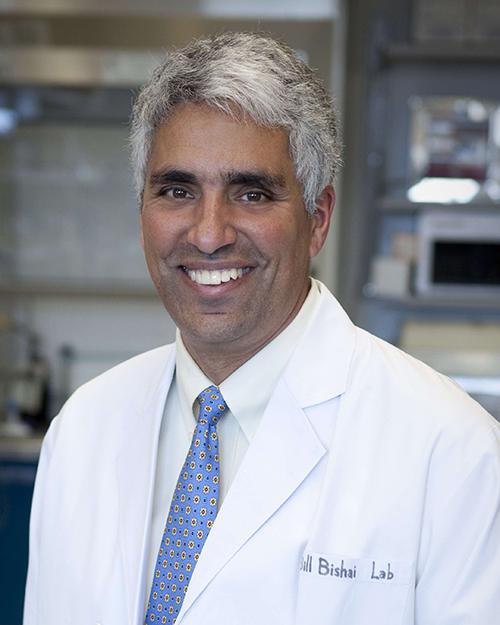Research Lab Results
-
Pablo Iglesias Lab
Investigators in the Pablo Iglesias Lab use analytic tools from control systems and dynamical systems to study cell biology, including biological signal transduction pathways. Our research interests include the ways cells interpret directional cues to guide their motion, regulatory mechanisms that control cell division, and the sensing and actuation that enable cells to maintain lipid homeostasis. -
Xiao Group
The objective of the Xiao Group's research is to study the dynamics of cellular processes as they occur in real time at the single-molecule and single-cell level. The depth and breadth of our research requires an interdisciplinary approach, combining biological, biochemical and biophysical methods to address compelling biological problems quantitatively. We currently are focused on dynamics of the E. coli cell division complex assembly and the molecular mechanism in gene regulation. -
Advanced Optics Lab
The Advanced Optics Lab uses innovative optical tools, including laser-based nanotechnologies, to understand cell motility and the regulation of cell shape. We pioneered laser-based nanotechnologies, including optical tweezers, nanotracking, and laser-tracking microrheology. Applications range from physics, pharmaceutical delivery by phagocytosis (cell and tissue engineering), bacterial pathogens important in human disease and cell division. Other projects in the lab are related to microscopy, specifically combining fluorescence and electron microscopy to view images of the subcellular structure around proteins. -
William Bishai Laboratory
The William Bishai Laboratory studies the molecular pathogenesis of tuberculosis. The overall goal of our laboratory is to better understand tuberculosis pathogenesis and then to employ this understanding toward improved drugs, vaccines and diagnostics. Since Mycobacterium tuberculosis senses and adapts to a wide array of conditions during the disease process, it is clear that the regulation of expression of virulence factors plays an important role in pathogenesis. As a result, a theme of our research is to assess mycobacterial genes important in gene regulation. We are also interested in cell division in mycobacteria and the pathogenesis of caseation and cavitation. -
J. Marie Hardwick Laboratory
Our research is focused on understanding the basic mechanisms of programmed cell death in disease pathogenesis. Billions of cells die per day in the human body. Like cell division and differentiation, cell death is also critical for normal development and maintenance of healthy tissues. Apoptosis and other forms of cell death are required for trimming excess, expired and damaged cells. Therefore, many genetically programmed cell suicide pathways have evolved to promote long-term survival of species from yeast to humans. Defective cell death programs cause disease states. Insufficient cell death underlies human cancer and autoimmune disease, while excessive cell death underlies human neurological disorders and aging. Of particular interest to our group are the mechanisms by which Bcl-2 family proteins and other factors regulate programmed cell death, particularly in the nervous system, in cancer and in virus infections. Interestingly, cell death regulators also regulate many other cellular processes prior to a death stimulus, including neuronal activity, mitochondrial dynamics and energetics. We study these unknown mechanisms. We have reported that many insults can trigger cells to activate a cellular death pathway (Nature, 361:739-742, 1993), that several viruses encode proteins to block attempted cell suicide (Proc. Natl. Acad. Sci. 94: 690-694, 1997), that cellular anti-death genes can alter the pathogenesis of virus infections (Nature Med. 5:832-835, 1999) and of genetic diseases (PNAS. 97:13312-7, 2000) reflective of many human disorders. We have shown that anti-apoptotic Bcl-2 family proteins can be converted into killer molecules (Science 278:1966-8, 1997), that Bcl-2 family proteins interact with regulators of caspases and regulators of cell cycle check point activation (Molecular Cell 6:31-40, 2000). In addition, Bcl-2 family proteins have normal physiological roles in regulating mitochondrial fission/fusion and mitochondrial energetics to facilitate neuronal activity in healthy brains.
Principal Investigator
Department



